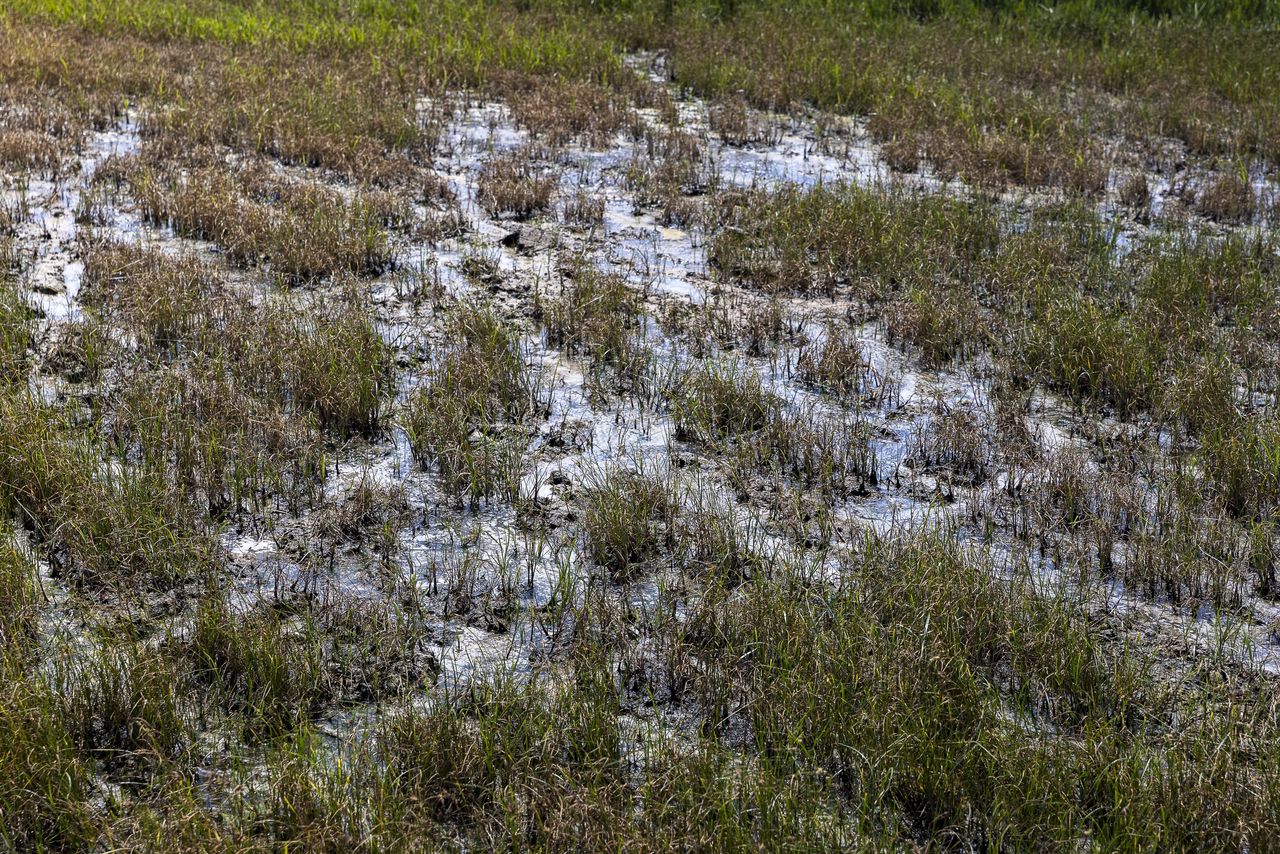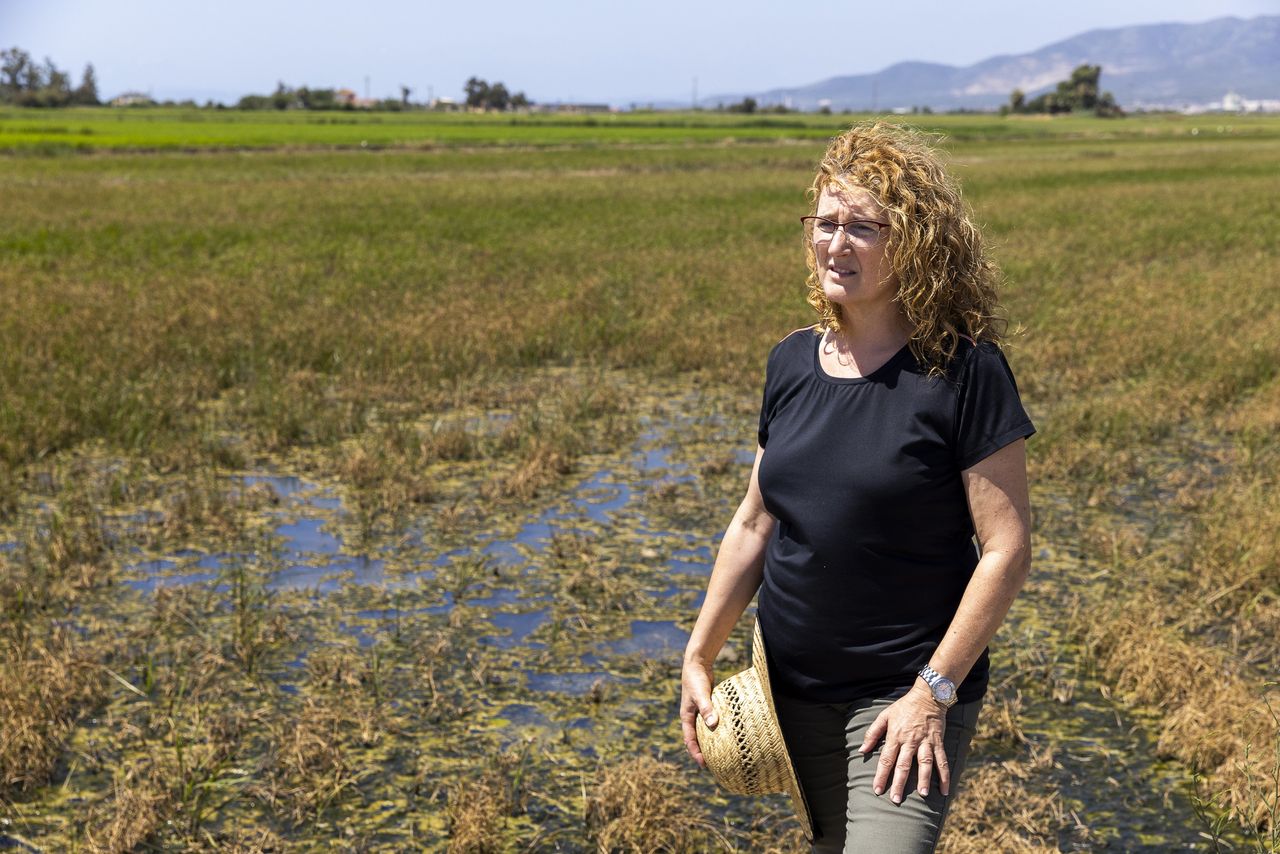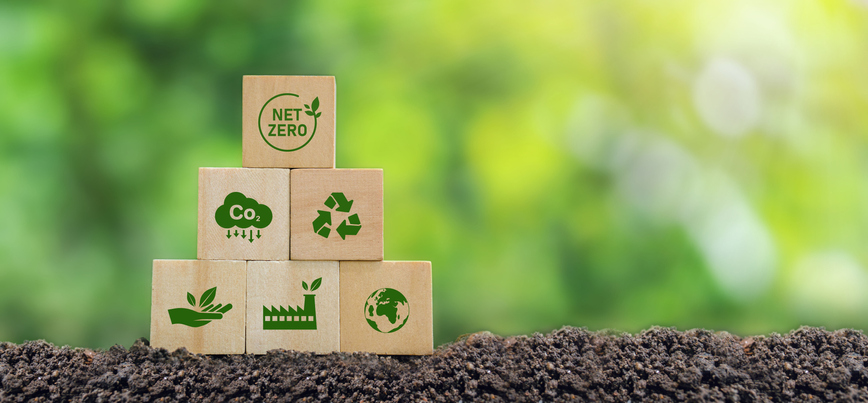It’s So Hot, They’re Growing Mangoes in Italy
Problems faced by farmers in the Mediterranean offer a preview into the challenges of feeding a warmer planet
EBRO DELTA, Spain—So much seawater is seeping into the paddy fields of this prized rice-growing region that Montserrat Sérvulo is considering replacing at least some of the crop with seaweed and clams.
“There is too much salt here,” said the 56-year-old farmer, standing on the edge of a field where she used to grow rice until last year. It is now filled with patchy grass and mud. “Last year wasn’t a good year, but at least we had something.”
Rising sea levels, dry spells and heat waves are disrupting food production in the Mediterranean, a region whose diet is regarded as a cultural treasure.
This year, prolonged drought and the scorching heat have hit agricultural production especially hard, wreaking havoc from the olive groves of Spain to the wheat fields of Algeria, reducing yields and pushing farmers to consider switching to hardier crops.
The recent heat wave has affected food production in other ways, too. Cows are producing less milk and bees are less willing to forage for pollen, with honey production down 70% compared with last year in Italy, according to Coldiretti, the country’s agricultural trade association.

The climate is changing faster in the Mediterranean than in most places on Earth. Average temperatures here have already risen by around 1.5 degrees Celsius since the dawn of the industrial age, more than in all other regions except the Arctic. The problems farmers face in the Mediterranean offer a preview into the challenges of feeding a hotter planet.
The Ebro Delta, where paddy fields are spread over some 20,000 hectares of land, is so vulnerable because it is coming under the twin pressures of rising sea levels and drought.
Seawater from the Mediterranean is reaching deeper inland than it used to, and there isn’t enough freshwater from the Ebro River to flush out the excess salt from the fields. Because of a prolonged drought, the river was running so dry this year that, for the first time ever, the water supply to the delta was interrupted for long stretches of time.
The result is what some farmers here say is shaping up as the worst harvest they have ever seen. “If we manage to harvest 30% of what we did last year, it will be a lot,” says Sérvulo, who grows rice varieties used to make beer, breakfast cereal and the local specialty, paella.
Short-term solutions include processing more wastewater and covering up canals to limit how much water evaporates. Creating buffer zones to counter coastal erosion, such as through artificial beaches, could also help. But that won’t solve the problem everywhere.
“In some areas, rice production isn’t feasible anymore,” says Carles Ibañez Martí, head of climate change at Eurecat, a Barcelona-based research centre, who has studied the Ebro Delta. “You can fight it to some extent, but adaptation has its limit and at some point you can’t adapt any more, you have to change.”
How close this turning point is depends on how fast the sea levels and temperatures rise. In the rice-producing areas of northern Italy the drought has been so acute this year that some farmers have already planted soybeans, which require less water, instead.
Scientists aren’t optimistic. The latest report by the United Nations Intergovernmental Panel on Climate Change says the effects of global warming in the Mediterranean Sea’s coastal countries are likely to intensify in the coming decades.
Scientists at IRTA, the Institute of Agrifood Research and Technology of Spain’s Catalonia region, are helping farmers adapt to climate change, including by studying fish, seaweed and clam varieties best suited to replace paddy fields in the wetlands of the Ebro Delta.
“We are developing the technology so that when there is need, we can easily transfer it. We need to have data from two-three years of production cycles to show [farmers] it’s a credible, feasible opportunity. If not, they will abandon these areas,” said Enric Gisbert, who oversees the aquaculture division of IRTA. “What is happening here will probably happen in other deltas of the Mediterranean.”
The IRTA has also developed a new breed of apple designed to withstand higher temperatures. Similar studies are happening elsewhere. In Israel, researchers recently developed a new variety of drought-proof tomato.
The drought is stressing the poorer southern rim of the Mediterranean, where economies are being forced to import more wheat and other food staples. In Algeria and Morocco, fields of wheat, barley and other staple crops along the country’s Mediterranean coast have turned yellow well before harvest time, dried out by a persistent lack of rainfall.
“There is no water. We can’t work,” said Mohammed Bahout, 80, whose family grows wheat and barley west of Algiers, in a region between the coast and the Algerian highlands that is the country’s bread basket. He used to grow tomatoes and other vegetables, but the lack of water forced him to grow less water-intensive staple crops instead.
“If the good Lord doesn’t send water, we’re finished,” Bahout said.
Some are trying to make the most of the changing climate. In southern Italy, farmers are growing tropical fruit such as mangoes.
The cultivation of fruits such as bananas, mangoes and avocados has increased threefold in Italy over the past five years, and now covers some 1,200 hectares of farmland in Italy’s southernmost regions of Sicily, Calabria and Puglia, according to Coldiretti.
In northern Italy, the warmer weather has enabled the large-scale production of tomatoes and olive oil—crops that until 15 years ago were a preserve of the peninsula’s central and southern regions.
“An increase in one or 1.5 degrees Celsius means we can now cultivate things such as wheat in northern Italy. But if the rise in temperature is followed by heavy rains and hailstorms with hails as big as tennis balls, that becomes a lot more complicated,” said Lorenzo Bazzana, who is in charge of economic analysis at Coldiretti. “Adapting to climate change isn’t so simple.”
In the Languedoc wine country in southern France, vineyards have been stifled by months of drought and now a heat wave. Lack of rain leaves grapes small and shrivelled, while heat can raise a wine’s alcohol content and dull the characteristic flavours of a terroir.
Languedoc, which stretches along the Mediterranean near Spain, is one of the French regions most at risk from rising heat and longer periods of drought.
“We have rarely seen a period this long without rain,” said Christophe Bousquet, president of Languedoc’s wine growers group. “The grapes aren’t very pretty. There are a lot of them, but they are extremely small.”
Languedoc wine growers are searching for ways to protect their livelihood from the growing impacts of climate change. Bousquet, who owns a vineyard in La Clape, a territory on the Mediterranean, is allowing the grass to grow around his vines to hold more moisture in the soil when it does rain.
They are also looking into planting different grape varieties that can better withstand drought and heat. That is a risky change, Bousquet said, and new vines take years to grow—time he says they don’t have.
“The problem is, time is against us,” he said. “The evolution of the climate in the Mediterranean is happening much faster than anticipated.”
—José Bautista contributed to this article
 Copyright 2020, Dow Jones & Company, Inc. All Rights Reserved Worldwide. LEARN MORE
Copyright 2020, Dow Jones & Company, Inc. All Rights Reserved Worldwide. LEARN MORE
This stylish family home combines a classic palette and finishes with a flexible floorplan
Just 55 minutes from Sydney, make this your creative getaway located in the majestic Hawkesbury region.
As Paris makes its final preparations for the Olympic games, its residents are busy with their own—packing their suitcases, confirming their reservations, and getting out of town.
Worried about the hordes of crowds and overall chaos the Olympics could bring, Parisians are fleeing the city in droves and inundating resort cities around the country. Hotels and holiday rentals in some of France’s most popular vacation destinations—from the French Riviera in the south to the beaches of Normandy in the north—say they are expecting massive crowds this year in advance of the Olympics. The games will run from July 26-Aug. 1.
“It’s already a major holiday season for us, and beyond that, we have the Olympics,” says Stéphane Personeni, general manager of the Lily of the Valley hotel in Saint Tropez. “People began booking early this year.”
Personeni’s hotel typically has no issues filling its rooms each summer—by May of each year, the luxury hotel typically finds itself completely booked out for the months of July and August. But this year, the 53-room hotel began filling up for summer reservations in February.
“We told our regular guests that everything—hotels, apartments, villas—are going to be hard to find this summer,” Personeni says. His neighbours around Saint Tropez say they’re similarly booked up.
As of March, the online marketplace Gens de Confiance (“Trusted People”), saw a 50% increase in reservations from Parisians seeking vacation rentals outside the capital during the Olympics.
Already, August is a popular vacation time for the French. With a minimum of five weeks of vacation mandated by law, many decide to take the entire month off, renting out villas in beachside destinations for longer periods.
But beyond the typical August travel, the Olympics are having a real impact, says Bertille Marchal, a spokesperson for Gens de Confiance.
“We’ve seen nearly three times more reservations for the dates of the Olympics than the following two weeks,” Marchal says. “The increase is definitely linked to the Olympic Games.”

Getty Images
According to the site, the most sought-out vacation destinations are Morbihan and Loire-Atlantique, a seaside region in the northwest; le Var, a coastal area within the southeast of France along the Côte d’Azur; and the island of Corsica in the Mediterranean.
Meanwhile, the Olympics haven’t necessarily been a boon to foreign tourism in the country. Many tourists who might have otherwise come to France are avoiding it this year in favour of other European capitals. In Paris, demand for stays at high-end hotels has collapsed, with bookings down 50% in July compared to last year, according to UMIH Prestige, which represents hotels charging at least €800 ($865) a night for rooms.
Earlier this year, high-end restaurants and concierges said the Olympics might even be an opportunity to score a hard-get-seat at the city’s fine dining.
In the Occitanie region in southwest France, the overall number of reservations this summer hasn’t changed much from last year, says Vincent Gare, president of the regional tourism committee there.
“But looking further at the numbers, we do see an increase in the clientele coming from the Paris region,” Gare told Le Figaro, noting that the increase in reservations has fallen directly on the dates of the Olympic games.
Michel Barré, a retiree living in Paris’s Le Marais neighbourhood, is one of those opting for the beach rather than the opening ceremony. In January, he booked a stay in Normandy for two weeks.
“Even though it’s a major European capital, Paris is still a small city—it’s a massive effort to host all of these events,” Barré says. “The Olympics are going to be a mess.”
More than anything, he just wants some calm after an event-filled summer in Paris, which just before the Olympics experienced the drama of a snap election called by Macron.
“It’s been a hectic summer here,” he says.

AFP via Getty Images
Parisians—Barré included—feel that the city, by over-catering to its tourists, is driving out many residents.
Parts of the Seine—usually one of the most popular summertime hangout spots —have been closed off for weeks as the city installs bleachers and Olympics signage. In certain neighbourhoods, residents will need to scan a QR code with police to access their own apartments. And from the Olympics to Sept. 8, Paris is nearly doubling the price of transit tickets from €2.15 to €4 per ride.
The city’s clear willingness to capitalise on its tourists has motivated some residents to do the same. In March, the number of active Airbnb listings in Paris reached an all-time high as hosts rushed to list their apartments. Listings grew 40% from the same time last year, according to the company.
With their regular clients taking off, Parisian restaurants and merchants are complaining that business is down.
“Are there any Parisians left in Paris?” Alaine Fontaine, president of the restaurant industry association, told the radio station Franceinfo on Sunday. “For the last three weeks, there haven’t been any here.”
Still, for all the talk of those leaving, there are plenty who have decided to stick around.
Jay Swanson, an American expat and YouTuber, can’t imagine leaving during the Olympics—he secured his tickets to see ping pong and volleyball last year. He’s also less concerned about the crowds and road closures than others, having just put together a series of videos explaining how to navigate Paris during the games.
“It’s been 100 years since the Games came to Paris; when else will we get a chance to host the world like this?” Swanson says. “So many Parisians are leaving and tourism is down, so not only will it be quiet but the only people left will be here for a party.”
This stylish family home combines a classic palette and finishes with a flexible floorplan
Just 55 minutes from Sydney, make this your creative getaway located in the majestic Hawkesbury region.






















